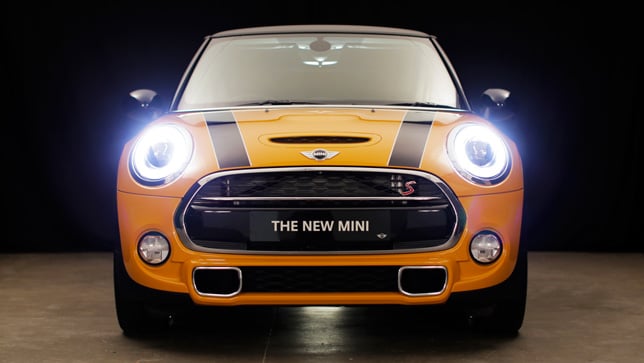Amy Congdon's couture fashion integrates textile design and tissue engineering
Dezeen and MINI Frontiers: in this movie, designer and researcher Amy Congdon explains how tissue engineering could be used to grow new biological textiles for the fashion industry.
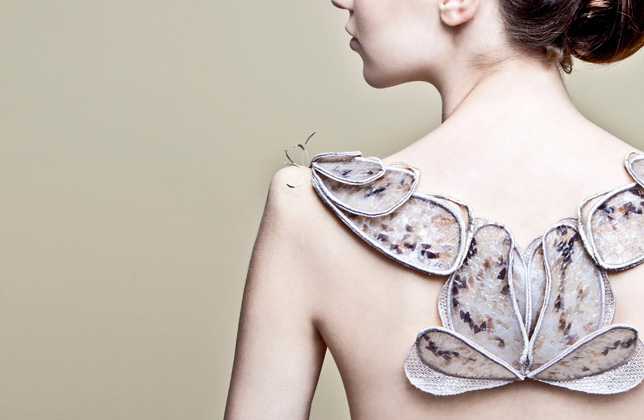
"I'm looking at how we might make materials such as leather in a new way," she explains in the movie. "Rather than killing an animal you'd take cells, expand them in the lab and use that to produce your [material]."
"But you could also think about what kind of new material hybrids could we produce. Could you grow new materials that we can't get from nature?"
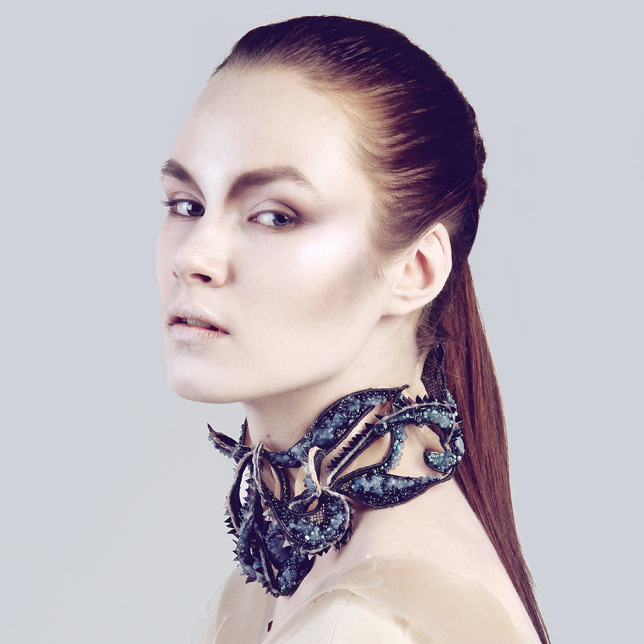
Congdon's Biological Atelier project, which she developed as part of her masters course at Central Saint Martins, imagines the kind of fashion we might be wearing in years to come.
"It's a speculative design project looking at a potential future for haute couture and fashion where we might grow luxury and bespoke materials," she explains.
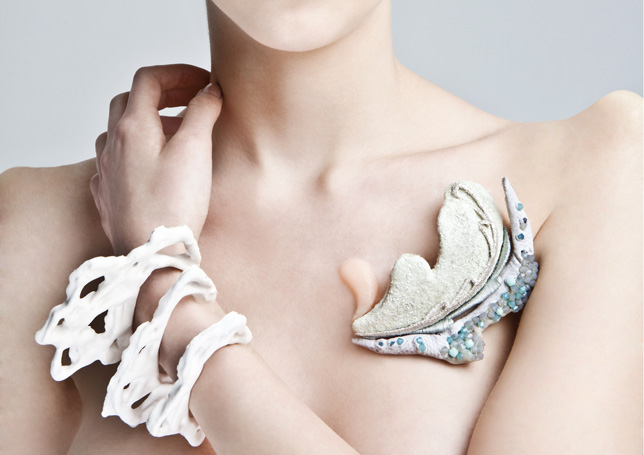
The collection includes a broach made from cells that the wearer might choose to graft onto their skin as well as a hybrid necklace grown out of a mixture of different animal scales and leather. "I was thinking about the different hybrids we might be able to create in the lab," Congden says.
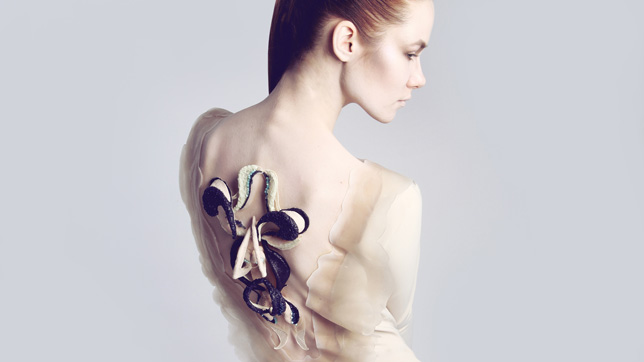
Congdon believes such materials could come to market "in the next ten to fifteen years".
She is currently collaborating with scientists at King's College London to explore how tissue engineering – a field of research exploring how replacement tissues or organs in animals and humans can be grown artificially – could enable her vision to become reality.
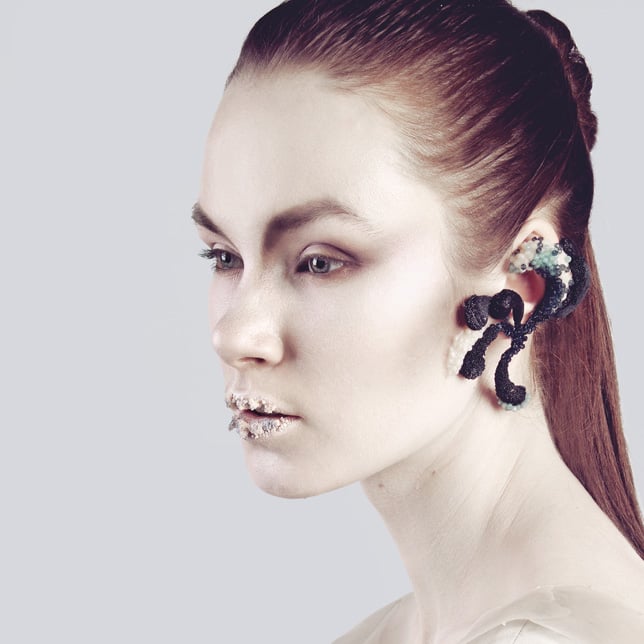
Biological materials could have a range of different benefits, Congdon says.
Dezeen Book of Interviews: our new book, featuring conversations with 45 leading figures in architecture and design, is on sale now
"You could engineer specific properties into them," she explains. "They could be water repellent or you could engineer the colour into them so you're not having to dye them."
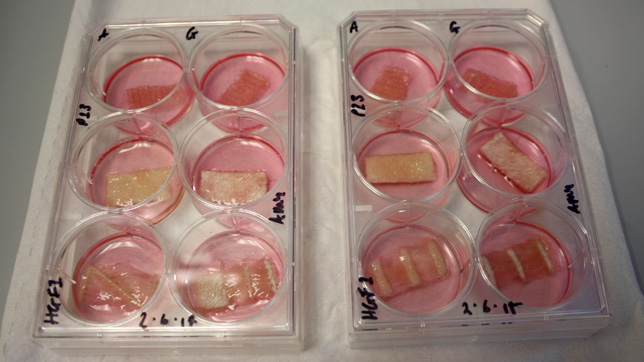
Developments in tissue engineering could also lead to materials being produced more sustainably.
"With any material you can grow it to the shape you need and then you don't have the waste," Congdon says. "We really need to acknowledge that we are living on just one planet, so we have finite resources. So we really need to think about new ways that we might produce materials and products."
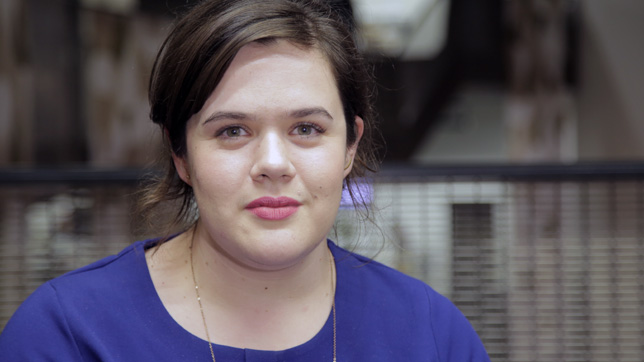
This interview was filmed in London at the Craft Council's Make:Shift conference, where Congdon was a speaker.
The music in the movie is a track called Trash Digital by UK producer 800xL.
Dezeen and MINI Frontiers is an ongoing collaboration with MINI exploring how design and technology are coming together to shape the future.
